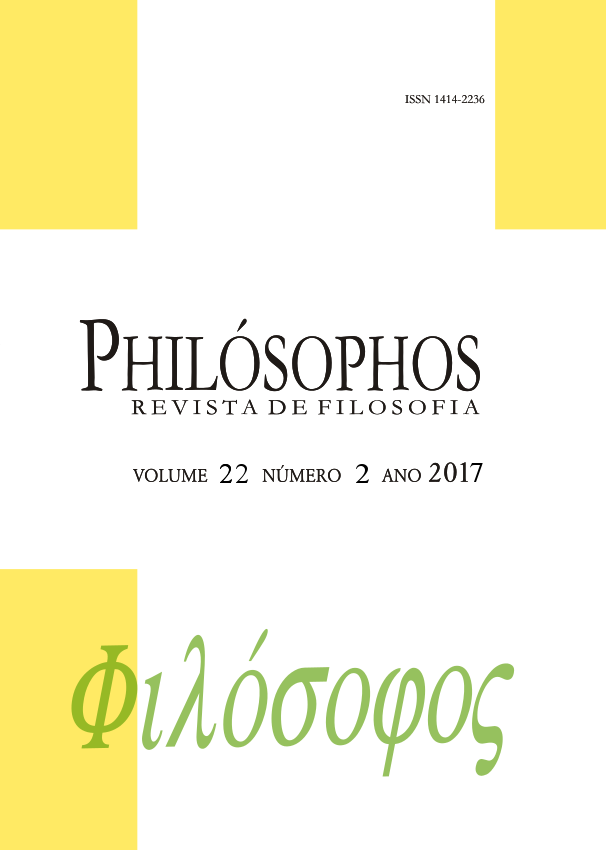WITTGENSTEIN, ONTOLOGY AND PANTHEISM
DOI:
https://doi.org/10.5216/phi.v22i2.41846Keywords:
Ontology, Pantheism, Philosophy of Religion, Wittgenstein.Abstract
In his book This complicated form of life, Newton Garver presents a curious interpretation of Wittgensteins’s early philosophy. Based on some passages of Notebooks and, especially, in considerations about Tractatus Logico-Philosophicus’ 'ontology', the commentator concludes that wittgensteinian philosophy, at least in its first phase, implies a pantheistic mystical-religious position. More precisely, Garver uses an abductive reasoning for (supposedly) show that pantheism would be the best explanation for the fact that there are, according to him, two ontologies in the Tractatus, namely, an ontology of facts and an one of objects. The aim of this text is to present and refute this interpretation. After reconstruct in detail the Garver’s position, I will present two arguments against it. At first, I will show that the commentator’s interpretation implies an unacceptable idea, according to which the pantheistic God would be founded rather than the foundation, as is commonly understood in the pantheistic traditions. In the second, I will show that it is possible to explain plausibly the 'ontology' of facts and objects present in the Tractatus, without resorting to pantheism.Downloads
Downloads
Published
How to Cite
Issue
Section
License
Authors who publish in this journal agree to the following terms:
- Authors retain copyright and grant the journal right of first publication, with the work simultaneously licensed under a Creative Commons Attribution License that allows others to share the work with an acknowledgement of the work's authorship and initial publication in this journal.
- Authors are authorized to enter into separate, additional contractual arrangements for the non-exclusive distribution of the journal's published version of the work (e.g., publishing in an institutional repository or as a book chapter), with an acknowledgement of its authorship and initial publication in this journal.















